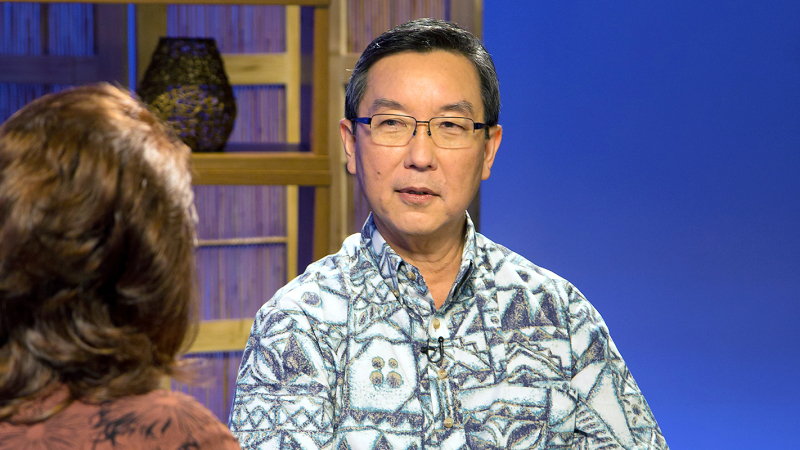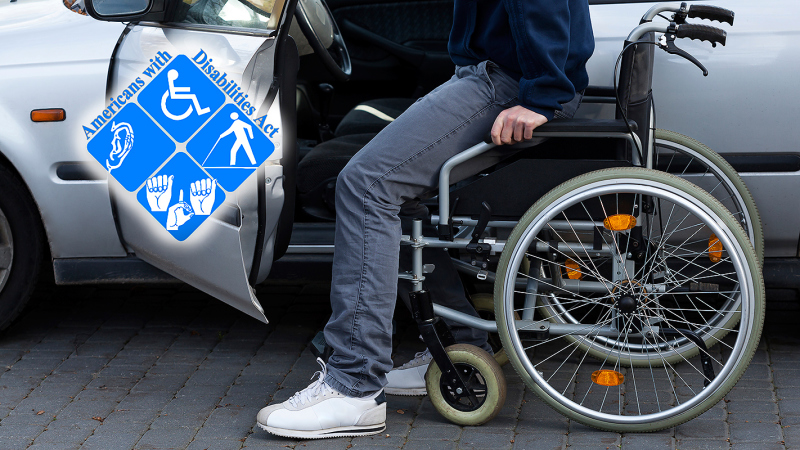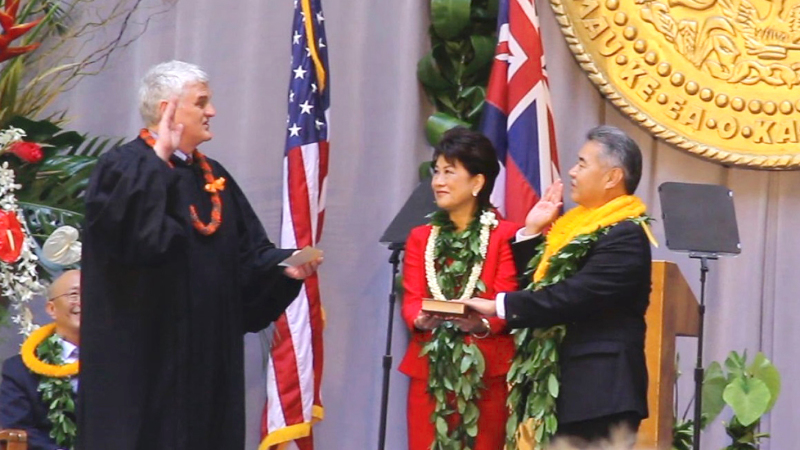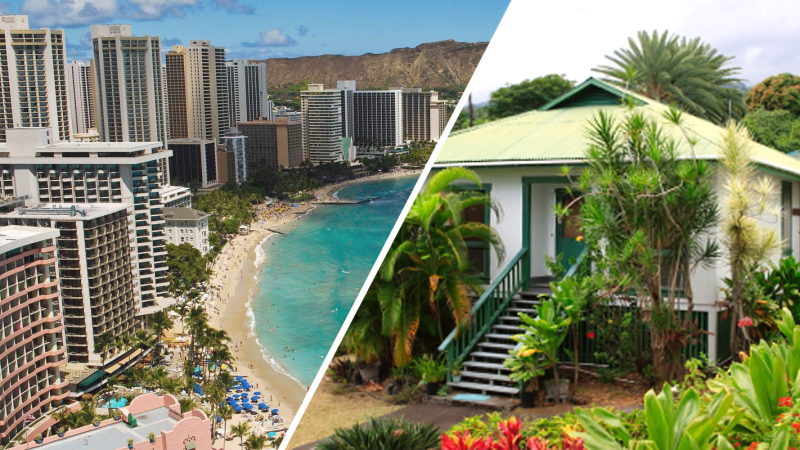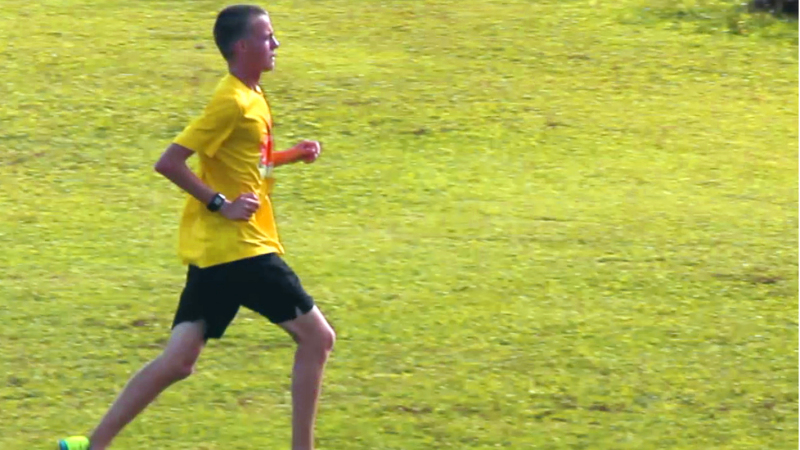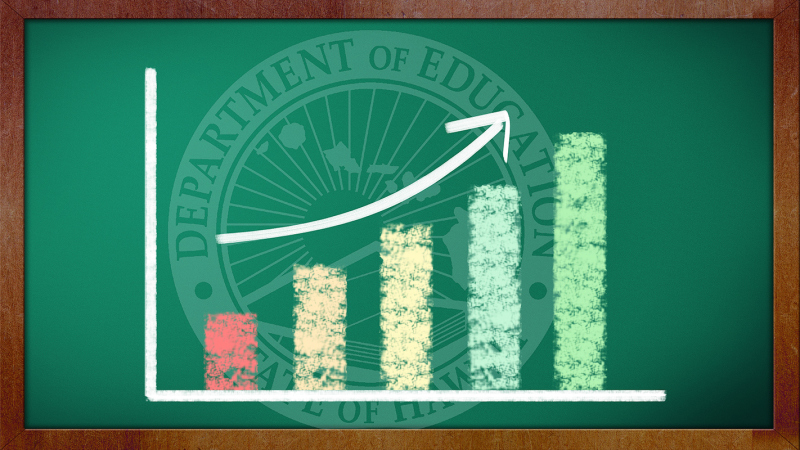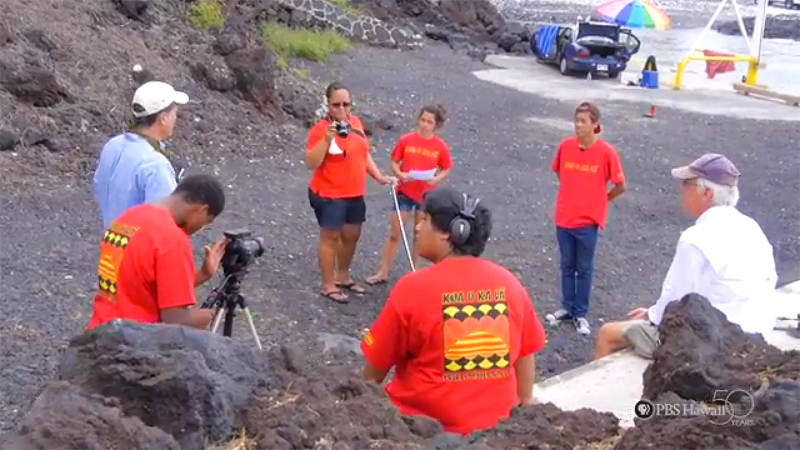Colbert Matsumoto grew up on Lanai when it was a pineapple plantation employing both his father and mother. He didn’t set foot on the Continent until he was a college freshman. And he grew up to become an attorney, insurance company executive and business and community leader in Hawaii.
July marked the 25th anniversary of the Americans with Disabilities Act, or ADA. The legislation prohibits discrimination and ensures equal opportunity for persons with disabilities in employment, State and local government services, public accommodations, commercial facilities and transportation.
This episode of HIKI NŌ is hosted by Kamehameha Schools – Maui Middle School on Maui. Top Story: Students from Roosevelt High School on Oahu highlight the December 2014 inauguration of Governor David Ige at the Hawaii State Capitol, focusing on his vision for public education in Hawaii.
More visitors are arriving in Hawai‘i, but according to recent numbers from Hospitality Advisors, hotel occupancy has not seen a corresponding rise. The growing Hawai‘i timeshare market, along with legal and illegal bed and breakfasts give visitors more options.
This is a special, first ever all-Kauai edition of HIKI NŌ, hosted by Island School in Lihue, Kapaa Middle School in Kapaa, Chiefess Kamakahelei Middle School in Lihue, Kapaa High School in Kapaa, Kauai High School in Lihue and Waimea High School in Waimea.
People who suffer from mental illness in Hawai‘i often have difficulty being diagnosed and finding and accepting treatment. Some end up on the streets, exacerbating an already booming homeless population. And Hawai‘i’s only state mental hospital is overcrowded, with some employees saying it’s unsafe for patients and staff.
An estimated 12,000 people have come to Hawai‘i in search of a better life, primarily from the Marshall Islands and Chuuk, which were affected by U.S. nuclear tests. Many find themselves on government aid or living in homeless encampments on Oahu. How can people displaced by U.S.
Last year, the Federal Department of Education praised Hawai‘i’s public school system for improving teacher training programs and providing better resources for struggling schools. But many public schools still face challenges, such as a shortage of teachers and, in some schools, a low graduation rate.
This half-hour documentary by filmmaker Stuart Yamane examines a new phase in the evolution of the nation’s first statewide student news network.
In 1993, President Bill Clinton signed a law apologizing for the overthrow of the Hawaiian Kingdom, fueling hopes that an independent Hawaiian nation would be recognized by the federal government. Twenty-two years later, sovereignty proponents continue to push for recognition in Congress, while new pathways toward nation-building emerge at home.

